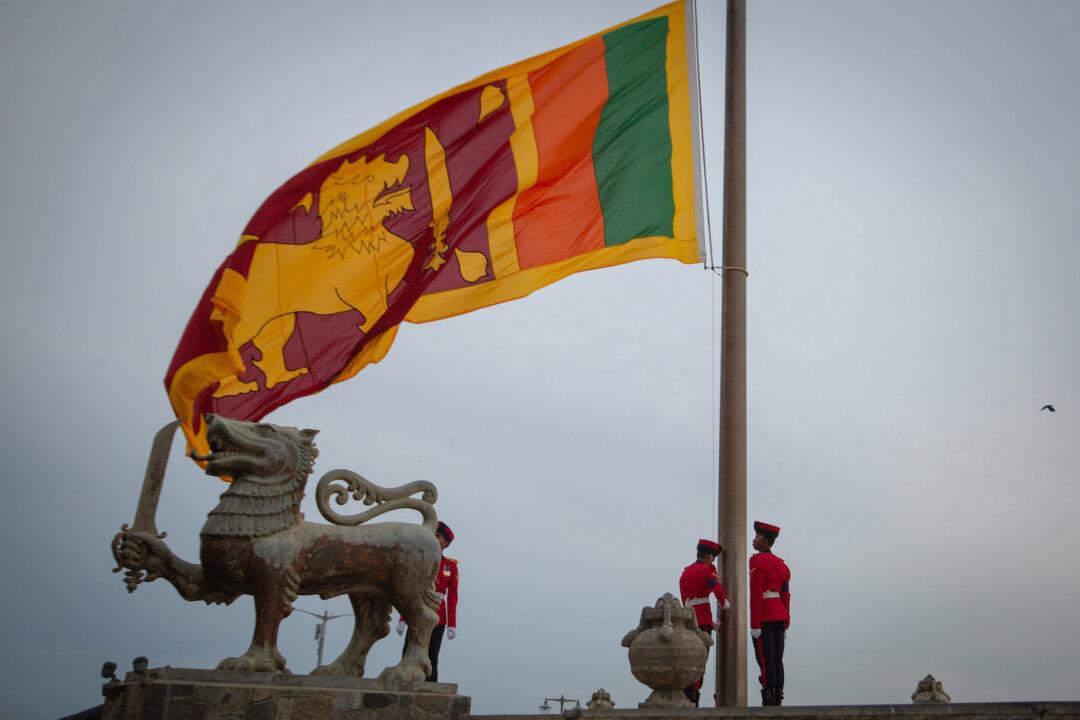Japan, India, and France on April 13 unveiled a plan to initiate a negotiation process with Sri Lanka’s creditors to coordinate the restructuring of Sri Lanka’s debt as the country seeks to resolve its economic crisis.
The plan was announced following a high-level meeting between officials from the three countries on the sidelines of International Monetary Fund (IMF) and World Bank meetings in Washington. Sri Lankan President Ranil Wickremesinghe also participated virtually.





